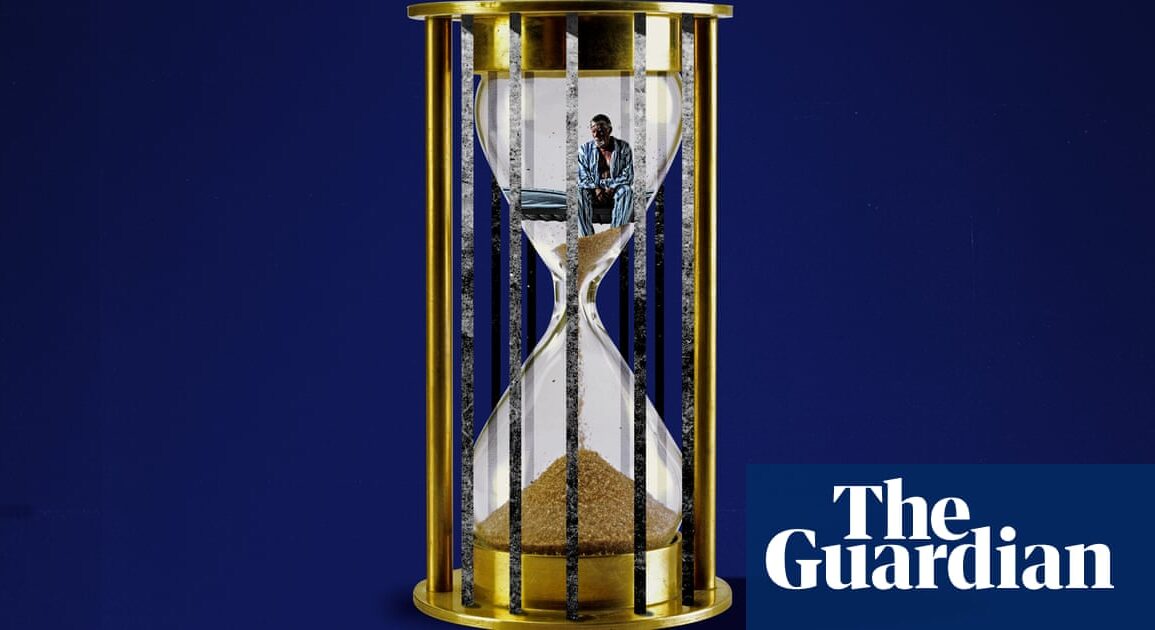
I am heartened by two pieces on indeterminate sentences that you published last week (Tommy Nicol was kind and friendly – a beloved brother. Why did he die in prison on a ‘99-year’ sentence?, 24 April; Editorial, 26 April). The suicide of Tommy Nicol starkly highlights how unjust imprisonment for public protection (IPP) sentences always were and remain (although abolished for new cases 12 years ago). As a former prison chaplain and doctoral researcher into pastoral care for those serving IPP sentences, I witnessed firsthand their impact on the mental wellbeing of those who were, in many cases, life-wounded souls themselves.
Thanks to the Guardian and campaign groups such as the United Group for Reform of IPP, I am hoping that this judicial scandal can achieve the same traction in the public consciousness that the Post Office scandal has. While the Commons justice committee report into IPP sentences in 2022 strongly recommended resentencing those still in custody, MPs on both sides of the house lack the moral courage to take this humane step to right a blatant injustice. Some time ago, as a Labour party member, I wrote to Keir Starmer seeking clarification on his position regarding the IPP scandal. Disappointingly, but unsurprisingly, my epistle was met with silence.
I appreciate the importance of managing risk when considering the release of prisoners. But the majority in parliament turning a blind eye to this blight on our justice system displays breathtaking callousness. I have witnessed men driven to suicide by the mental torture this awful sentence inflicts. Sadly, they will not be the last. Shame on us all.
Rev Dr David Kirk Beedon
Newcastle-under-Lyme, Staffordshire
In 2007, I co-authored a report called In the Dark, which was based on interviews with 55 male prisoners on IPP sentences in three prisons. It was the first report to explore in detail the mental health implications of such sentences, and map the process from sentencing to release, using interviews with prisoners and prison staff, and government data.
I recall the desperation expressed by many of the men we spoke to when, on arriving at prison from court after receiving relatively short tariffs of a few months, they were informed they had been sentenced to 99 years. As I wrote in the report: “For the majority, the indeterminacy of IPP was conveyed abruptly on their arrival to prison on sight of their files and computer record, which stated ‘99 years’ as the length of their IPP sentence.”
When we asked about this, we were told that the Prison Service computer system predated the IPP sentence, so indeterminate prisoners were recorded as serving “99 years”, rather than showing the tariff length.
The mental health impact of this was appalling. In many cases, the initial shock of receiving an IPP sentence was replaced by high levels of stress, despair and an erosion of hope caused by indeterminacy. As one man told us: “Being in jail and not knowing when you’re coming home – it smashes your head to pieces.” The IPP remains, as Kenneth Clarke said in 2012, a stain on the criminal justice system.
Max Rutherford
Northampton
Prior to retirement in 2016, I worked for four years as a probation officer in a category C prison, with a caseload entirely composed of lifers and men on IPP sentences. Most had served years beyond their tariff date and had been unable to access the courses they needed to complete before the Parole Board would consider them for release. The courses were not available because of savage funding cuts as part of Tory austerity and Chris Grayling’s “reform” programme.
It was hardly surprising that many in this prisoner group suffered severe mental health problems. Removing hope makes people reckless and dangerous, and who can blame them.
Ellie Dwight
Stafford
I work with the Samaritans. Many calls are from prisoners. Some of them claim to have done terrible things, some have committed much lesser offences. Talking to them is uplifting for what to me feels like their incredible fortitude and bravery, but at the same time it is utterly heartbreaking. Heartbreaking because so many come from a background of deprivation or abuse, places where crime is de rigueur. Heartbreaking because prison is no longer rehabilitation or hope when the sentence is served; it seems so often that prison is just further punishment for a start in life that had offered little hope – except to resort to a life of crime.
Surely if we are to have a civilised society, we need to stop treating our prisoners like dangerous animals or monsters. We need to rehabilitate with empathy, give prisoners a chance to learn skills to earn a living on the outside; offer hope.
Karen Baker
Seabournes, Herefordshire
This post was originally published on this site be sure to check out more of their content.









